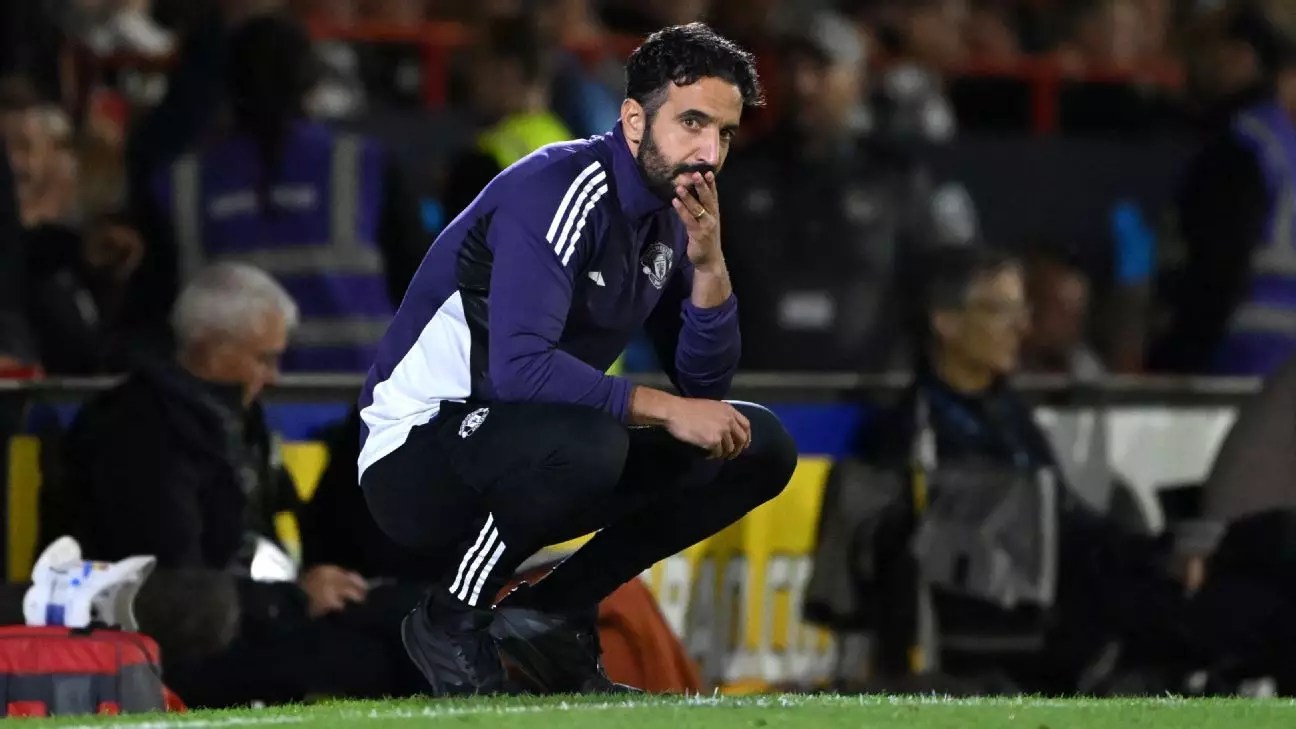Ruben Amorim’s candid admission of letting his emotions cloud his judgment reveals an intense internal conflict that many leaders face but rarely openly discuss. His emotional revelation following Manchester United’s setback against Grimsby Town unveils a critical aspect of high-pressure management—the volatility of top-tier coaching. Rather than a display of weakness, Amorim’s outburst underscores his relentless drive for excellence and his sensitivity to failure. It is a rare glimpse into the human side of leadership, where frustration and disappointment threaten to overpower rational judgment.
His admission that sometimes he “hates” or “loves” his players depending on the moment shows a complex emotional landscape. Coaches often project this intensity outwardly, but Amorim’s honesty about his fluctuating feelings hints at the crucible of expectations and the emotional toll of maintaining a top-level team. His vulnerability is both a strength and a weakness—strength in his passion, weakness if it clouds strategic decision-making or affects team morale.
Pressure Mounts as Expectations Clash with Reality
Amorim’s recent struggles mirror a broader challenge faced by managers stepping into big shoes at storied clubs like Manchester United. The defeat to a League Two side, especially in a competition where veterans and fans expect resilience and dominance, intensifies scrutiny. The fact that he publicly referenced the need for change signals a coach under siege, grasping for solutions amidst mounting pressure. Such moments can serve as catalysts for either growth or derailment, depending on subsequent actions.
The emotional meltdown after the Grimsby game reveals a coach feeling the weight of expectations, both from the club’s history and his own ambitions. It also exposes a disconnect between his emotional responses and the strategic realities of modern football management. Fans and media often enjoy dissecting these outbursts, but beneath the surface, they highlight a coach’s desperation to find stability amid chaos.
The Fragile Balance of Leadership and Self-Reflection
Amorim offers a rare glimpse into the fragile nature of leadership. His thoughts of possibly walking away or wanting to stay for decades suggest a man who is deeply introspective and aware of his vulnerabilities. These inner conflicts are commonplace in high-stakes environments, yet few admit to contemplating resignation or expressing such emotional flux publicly.
His comments also raise questions about his preparedness for the managerial pressures at Manchester United. Adapting to such a demanding environment requires resilience, emotional discipline, and a clear strategic vision—traits that Amorim is actively striving to develop. His willingness to admit his emotional struggles could be the first step toward greater self-awareness and growth, provided he can channel these feelings into constructive change instead of immediate regret.
Implications for the Future and Personal Growth
Amorim’s candidness can be perceived as a double-edged sword. While it humanizes him, it also risks undermining his authority if not managed properly. The coaching journey is a marathon of self-improvement, especially in an environment demanding resilience, tactical brilliance, and emotional stability. For Amorim, learning to harness his feelings—transforming frustration into strategic motivation—will be paramount.
This episode is instructive not only about Amorim’s personal challenges but also about the broader nature of leadership under extreme scrutiny. It reveals that even the most passionate and seemingly confident leaders are susceptible to doubt and emotional upheaval. Ultimately, how he channels these experiences will determine his trajectory at Manchester United and whether he can grow from the crucible of emotional hardship into a more balanced, resilient leader.


Leave a Reply